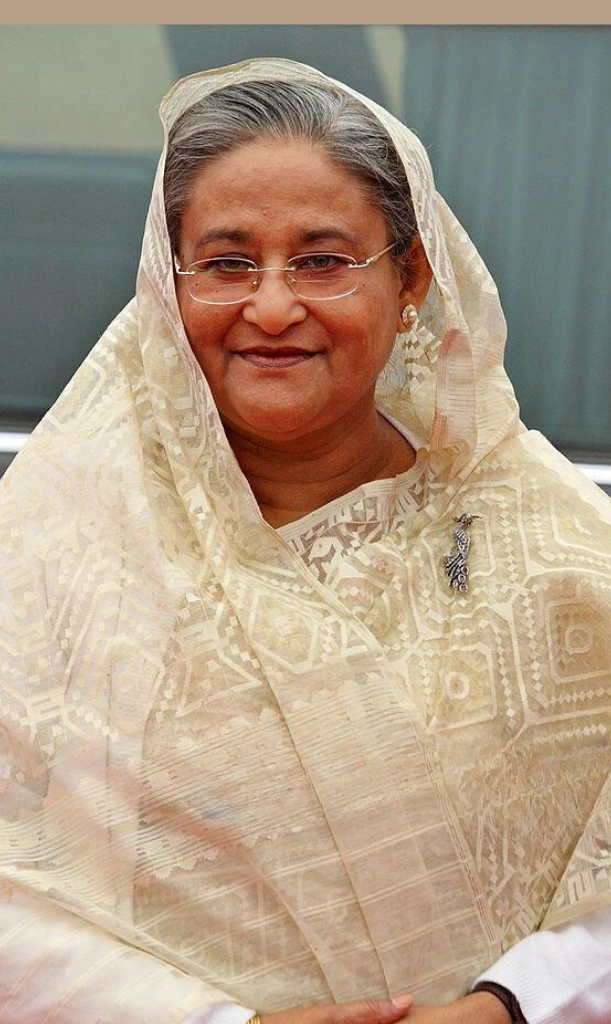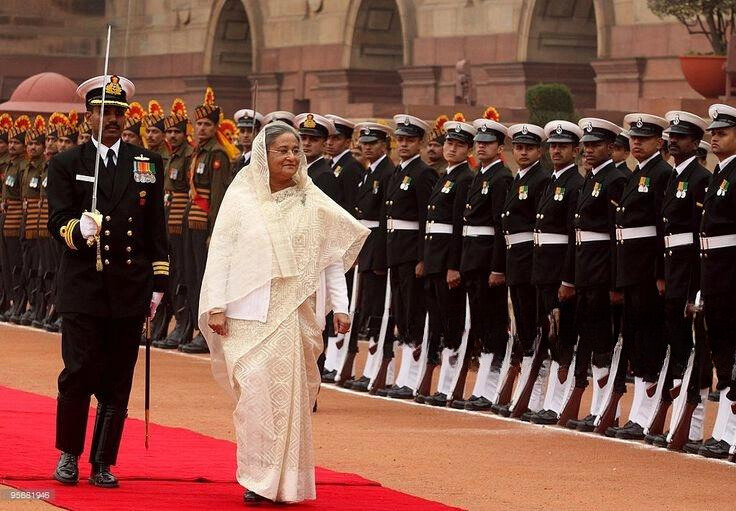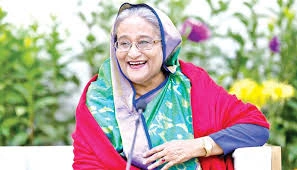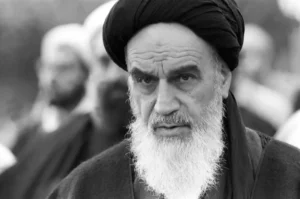Sheikh Hasina, the Prime Minister of Bangladesh, represents an example of courage and endurance in the records of recent history. Her climb to prominence is not only one of ideological rise but also a testimony to her steadfast commitment to converting her country into an effective democracy and economic and social strength in the Asia-Pacific region.
Through her imaginative regulations and unwavering perseverance, She has successfully created an extraordinary legacy that corresponds that go far beyond the frontiers of Bangladesh.
Early Life of Sheikh Hasina
Sheikh Hasina, born on September 28, 1947, in Tungipara, East Bengal, to Sheikh Mujibur Rahman of Bangladesh and Begum Fazilatunnesa Muhammad Mujib grew up amidst turmoil in politics. Educated at Azimpur Girls School and Eden College, she subsequently pursued Bengali literature at Dhaka University, where she graduated.

In 1967, she married M. A. Wazed Miah, a nuclear scientist. Tragically, her family, except for her, her husband, and her sister Sheikh Rehana, was assassinated during the 1975 coup. Forced into exile, she returned to lead the Awami League in 1981 after years abroad, barred by the military regime of Ziaur Rahman.
Rise in politics
Upon coming back to the Republic of Bangladesh in 1981, Sheikh Hasina appeared as a vocal champion of democratic systems, confronting numerous instances of confinement for her political views. As the leader of the contrast in the legislature, she strongly opposed military rule while promoting essential human rights.
In December 1990, her determined stance and widespread public support compelled Lieutenant General Hussain Mohammad Ershad, Bangladesh’s last military ruler, to resign following her ultimatum.
Political Career and Resilience
Sheikh Hasina’s political journey started with challenges. Following the brutal murder of her father and most of her immediate family in 1975, she was thrown into a role as a leader within the Awami League, which was an organization with a strong history in the struggle for freedom. Regardless of confronting numerous instances of refuge and persecution for her views, she appeared as a strong and passionate leader, unchanging in her commitment to the principles of democracy and equitable societies.
Also Read: Ali Khamenei
Leadership and Vision
Assuming the workplace as the leader of the government of Bangladesh in 1996, Sheikh Hasina set out on an exciting path influenced by her vision of a “Digital Bangladesh.” In her direction, Bangladesh has experienced outstanding economic growth, decreased the poverty rate substantially, and made significant advances in sectors such as education, healthcare, and building new infrastructure.
Her regulations have been directed not only at growing the economy but also at promoting social cohesiveness and acceptance within the varied textiles of Bangladeshi society.

Controversies
Sheikh Hasina’s time as president has been defined by both accomplishments and controversies. Padma Bridge’s corruption controversy suspected of corruption including her government and a Canadian company, which led to The World Bank removing money over fraud concerns, though afterward investigations found the claims unfounded.
Hasina’s governance of the structure separately, considerably more than the initial estimate of costs. Her administration’s journey with the Digital Security Act in 2018 faced criticism for potential inhibition of freedom of speech locally as well as internationally. In addition, her government’s closing of websites claimed to be releasing “anti-state news” has caused more controversy, seen by opponents as a bid to silence opponents of the government.
Achievements and Legacy
Sheikh Hasina’s tenure has been defined by numerous accomplishments that have obtained her both national and international acclaim. From getting gender equality in elementary education to improving diplomatic interactions internationally, her practical strategy for governance has gotten her the respect of others and citizens alike.
The Padma Bhushan, Bangladesh’s most prevalent civilian award, handed down upon her in an understanding of her remarks, stands as evidence of her lasting impact on her home country and beyond.
Humanitarian Efforts and Global Advocacy
In addition to her role as a politician, Sheikh Hasina has been an unwavering supporter of humanitarian initiatives and peace across the globe. Bangladesh’s outstanding attitude toward emergencies, including offering protection to Rohingya refugees living persecuted in Myanmar, demonstrates her steadfast dedication to maintaining basic human values and rights on the international stage.
Faqs
Who is Sheikh Hasina?
She is the current President of Bangladesh, who served since January 2009. Hasina is the daughter of the founding father of Bangladesh Sheikh Mujibur Rehman and has been a significant partisan figure in the nation for many years.
What are Sheikh Hasina’s major achievements?
Her tenure has seen major successes in economic expansion, decreasing poverty, and construction of infrastructure in Bangladesh. Her regulations have concentrated on sectors such as health care, education, and technology, striving to advance the nation while raising the standard of living.
What controversies has she faced?
Her government has been involved in disputes, including claims of graft in initiatives like the Padma Bridge construction. The enactment of the Digital Security Act was attacked for possibly reducing liberty of speech, and actions toward news organizations have also caused both national and global concern.
What is Sheikh Hasina’s political background?
She arrives from a highly political family, with her father, Sheikh Mujibur Rahman, originating Bangladesh to freedom in 1971. She has been an important personality in the Awami League party, serving as its head of government and engaging an important part in the development of Bangladesh’s political climate.
How has She impacted Bangladesh’s international relations?
Her foreign policy has been centered on enhancing Bangladesh’s connections with international and regional partners. She has been aggressive in diplomacy, particularly when tackling issues like warming temperatures and regional stability while managing relations with adjacent nations and major world powers.

Conclusion
Sheikh Hasina’s journey from the turbulent days of Bangladesh’s declaration to the struggle to turn into one of the foremost significant figures in South Asia isn’t anything short of motivating. Her steadfast commitment, endurance in the face of difficulties, and innovative management have not just shaped the development of Bangladesh but have also set her as an inspiration for future leaders worldwide.
As she persists in leading Bangladesh into a period of success and progress, Sheikh Hasina reflects the essence of a contemporary myth whose influence will continue for future generations to come.

